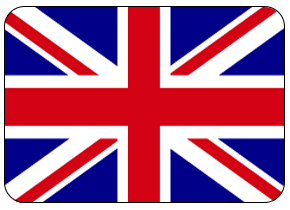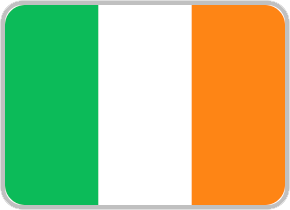Murnaghan 14.09.14 Interview with Sir Martin Sorrell CEO WPP & Michelle Thomson, Business for Scotland
ANY QUOTES USED MUST BE ATTRIBUTED TO MURNAGHAN, SKY NEWS
DERMOT MURNAGHAN: Well then, would Scottish independence be good or a bad development for business? It’s a simple question but it clearly it doesn’t have a simple answer and it has been the most contentious part of the independence debate. So are we any closer to the truth? Joining me now from central London is the most powerful advertising executive in the world, the CEO of WPP, Sir Martin Sorrell and joining me here in Edinburgh is the Managing Director of Business for Scotland, a pro-independence body of course, Michelle Thomson. A very good morning to you both and I want to start with you, Michelle, as we know the old saw is that, and it’s true, all businesses don’t like uncertainty. Now some uncertain things happen because of events but you have got to accept that businesses don’t like the status quo being shaken up.
MICHELLE THOMSON: I’m sure for some businesses they might feel uncomfortable about that but the very fact is all business people, myself included, need to deal with change and actually the best businesses are the ones that see change as an opportunity, actively look for opportunities within that change. I am perfectly sure that a whole host of excellent businesses will adapt to that. It is one of the constants in fact in business is change so it’s not something that overly worries myself or my members.
DM: So Sir Martin, it shouldn’t worry you given the business you’re in – you read, you anticipate, you even develop trends, surely an organisation like yours and others could easily adapt to an independent Scotland.
SIR MARTIN SORRELL: Michelle talks about change, I think her business history is in financial services and property and probably two of the biggest changes that will happen in Scotland as a result of separation, because of separation – this is not about independence, this is about separation – two of the biggest changes will be to the property industry in Scotland. Interest rates will rise, mortgages will be more difficult to come by and the financial services industry will be defenestrated as people move down south and these changes, the changes Michelle refers to, are changes we have some control over, when I say we, the Scottish voters have some control over. When I listened to Dennis Canavan just a few minutes ago, Dermot, the argument is really a political argument, it’s not an economic argument. The effects of a political decision are the economic effects and what will happen is prices will rise, food prices, the food retailers have been quite clear about that. It’s not a conspiracy, they are just saying what will happen. Interest rates will rise, there will be considerable instability, investment will fall and the Scottish economy depends very heavily on government employment. Where is the money going to come from to continue to employ those people in government?
DM: Okay, Michelle, these have been given not just from Sir Martin there, as tablets as stone – this will happen, interest rates will rise, food prices will rise, mortgages will be more expensive and chunks of the financial services industry, many of whom are headquartered in this very city we’re in, will migrate.
MICHELLE THOMSON: Yes, it is indeed a kind of prophecy of doom but quite frankly people are quite entitled to their opinion but …
DM: It is just opinion?
MICHELLE THOMSON: Yes, it is just opinion because I’d like to see the substantive plans of how exactly food prices will rise. I mean people don’t just announce they’ll rise without actually going and looking at the distribution centres, looking at the supply chain, logistics and so on. I haven’t seen any evidence of that. Interest rates will rise – why on earth will they rise? For goodness sake, for a start there will be a currency union so that’s not going to happen. The fundamentals are in place and …
DM: Well that’s opinion isn’t it, there’ll be a currency union? We hear very clearly from south of the border there won’t.
MICHELLE THOMSON: Well I think we just need to look at what the big brains are saying in this. This business about continual fear and it is scaremongering unfortunately as a strategy for the No campaign is no longer working. Business must see opportunity, business does see opportunity in an independent Scotland. We now have over 2800 business owners who see that opportunity, they see the opportunity in brand, in digital connectivity, in economic and tax policies that favour our type of businesses and I’m absolutely sure the large businesses will continue to trade because Scotland is open for business and will continue to be after Yes vote.
DM: Okay, Sir Martin, you’ve heard that, we’ve heard quite a lot of it before but the central charge is of course that it’s scaremongering by businesses and I heard from the Deputy First Minister, Nicola Sturgeon, today said that elements about conspiracy about it between some big businesses and the government.
SIR MARTIN SORRELL: I don’t think it is a conspiracy, I think it is people that run businesses and they have their responsibilities to all the stakeholders, the electorate, the electorate in the UK as a whole, to all the other stakeholders, their shareholders, their employees, their suppliers, advisors etc and they are all expressing their view as to what will happen. It’s an opinion, we don’t know what is going to happen until it actually happens but the likelihood is such. Let’s say there was a Yes vote, I think most people believe, certainly that I’ve talked to, that there will be a small No vote and that in and of itself will give significant issues to deal with but let’s assume there is a Yes vote, a strong Yes vote next week or the end of this week, what will happen? How will Scotland try and position itself? As I said on your competitor network, CNBC, they will try and position themselves as a sort of Singapore or a Uruguay but when you look at the basics, when you look at the basics in Singapore or in Uruguay, their geographical position, their historical position, Scotland will be an outlier. Glasgow, Edinburgh will be cities that will be outliers, not at front and centre in global business thinking. London actually, ironically, will become even more competitive to Edinburgh or Glasgow as a centre for global corporations and I don't think in that competitive environment that a city state of Scotland will win out in competing for business. Somebody will have to pay for this, Dermot, and the tax yields will go down, they won’t go up. Businesses will be less profitable in Scotland as a result.
DM: You have come up with all the warnings but I just want to ask you specifically though, Sir Martin, and it was contained in the first question I put to you, businesses like yours, if it did happen despite all these warnings, if it did happen businesses like yours would of course adapt.
SIR MARTIN SORRELL: Well they will adapt, Dermot. We will look at it and instead of operating in 110 countries we’ll be operating in 111 countries, there will be an additional country with five million people but I have to say, I was thinking about it after I saw George Osborne on Andrew Marr’s programme last weekend and I was thinking about what are the implications for WPP? Well the implications for WPP actually are not good not just for Scotland but for the UK as a whole. The UK accounts for about 10% of our revenues and our profits on a global basis. As I look at WPP in the future, what we will do is spend more investment money outside the UK in trying to develop our business beyond the UK borders with increasing intensity. The digital area in the UK will become more and more important but certainly geographically the UK will be diminished and the pity about this is that we are turning in and on ourselves, Dermot and not growing the whole of the UK.
DM: Okay, Sir Martin. A quick response, Michelle Thomson.
MICHELLE THOMSON: That was a very typical argument, nothing positive. What on earth is a union for? What positive opportunities does it offer Scotland? None. In actual fact our global reach is diminished as being part of the Union. We’re looking forward and out, we’re looking at taking control and creating a better future for Scotland both for business and for people and I’m very excited, optimistic and positive about that and so are the people of Scotland.
DM: Well very good to see you, thank you very much, Michelle Thomson and Sir Martin Sorrell.


